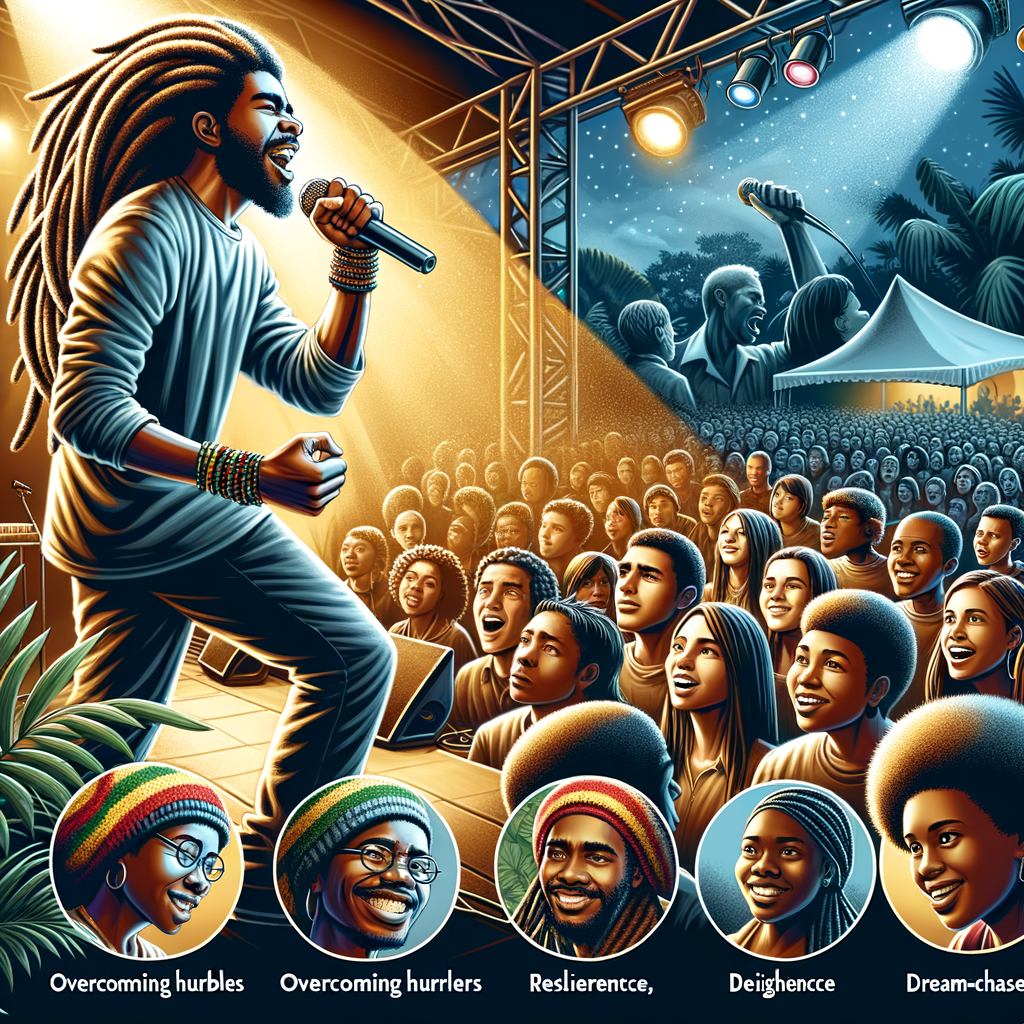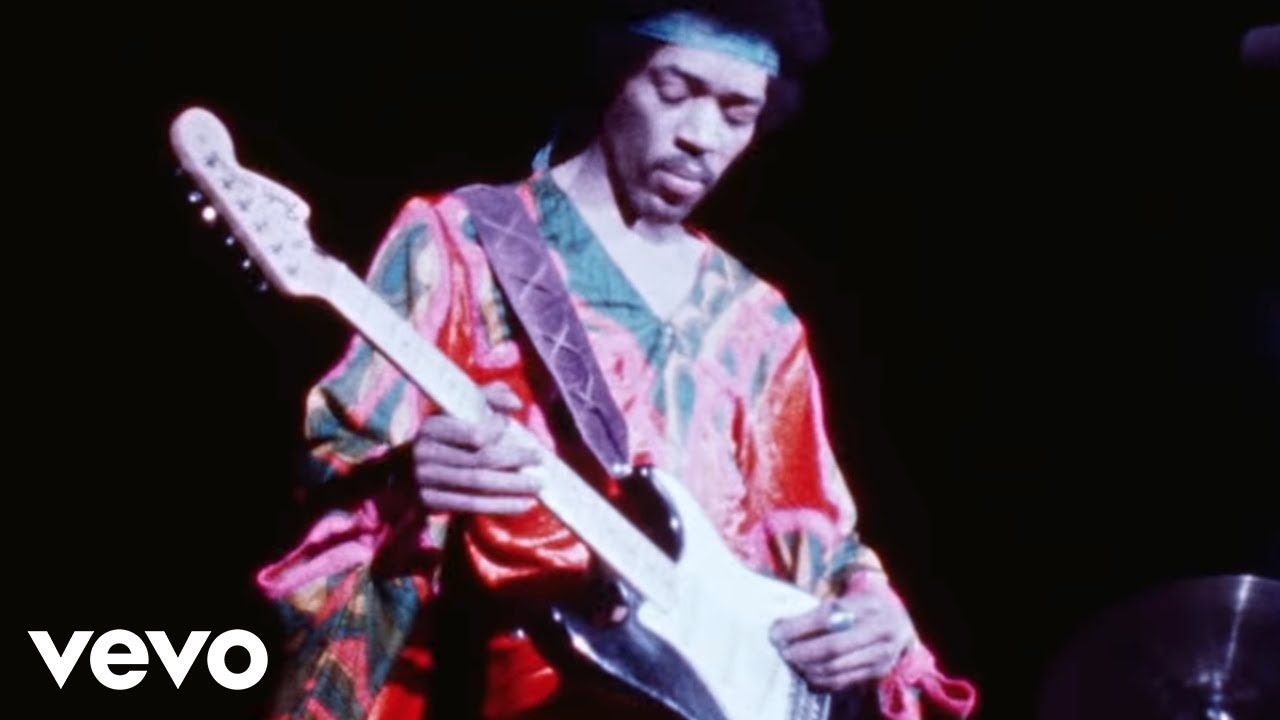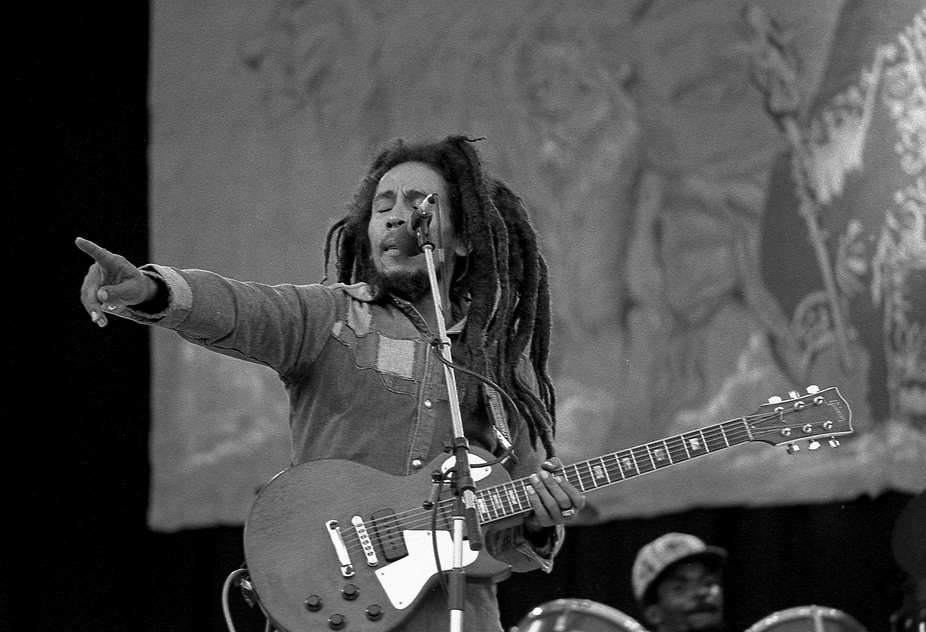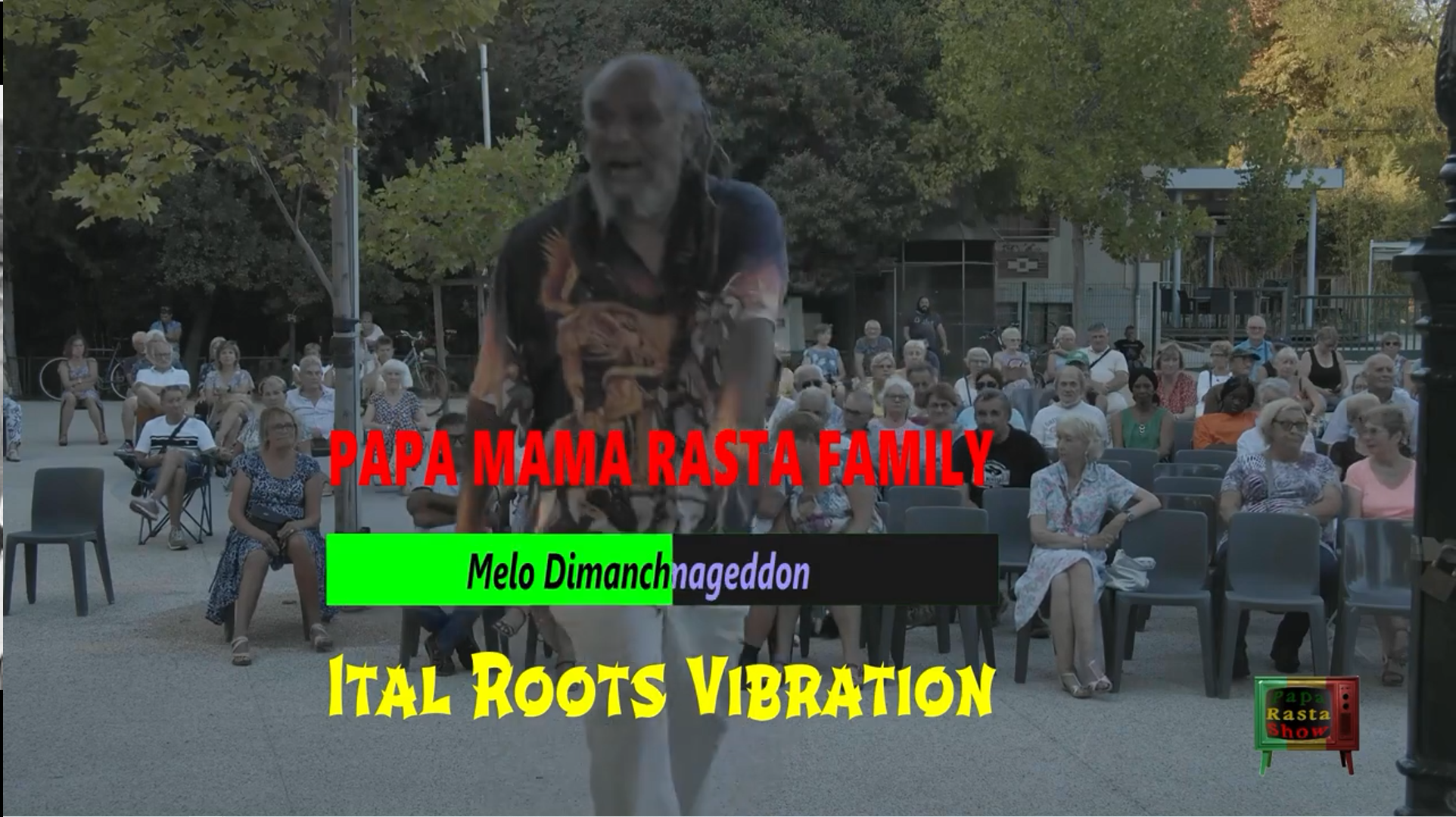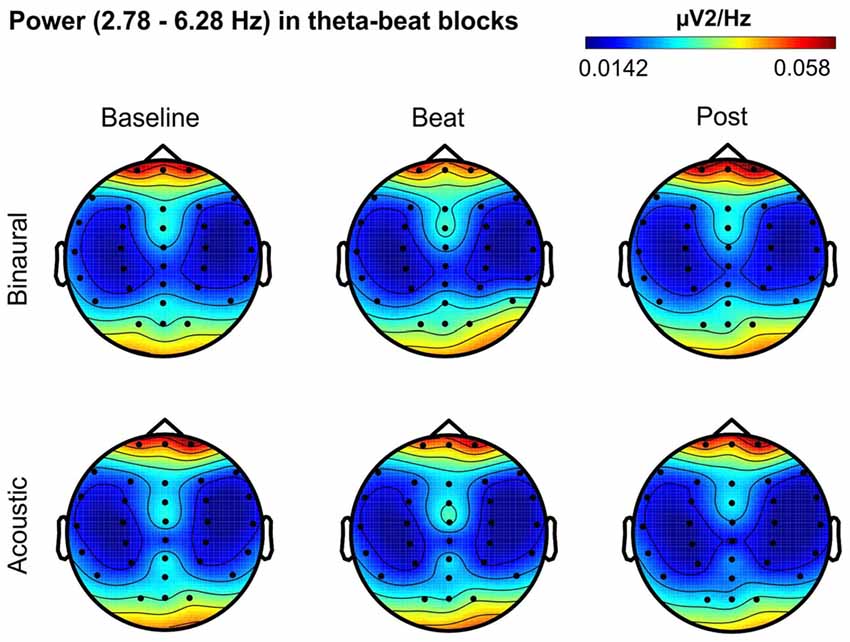Lessons From Bob Marley On Following Your Dreams and Overcoming Challenges
Bob Marley, the legendary Jamaican musician, is not only known for his iconic reggae music but also for his inspiring journey of following his dreams and overcoming challenges. His life story serves as a powerful reminder that with determination and perseverance, we can achieve our goals and overcome any obstacles that come our way.
Born in a small village in Jamaica, Marley faced numerous challenges from an early age· Growing up in poverty, he had limited access to education and resources· However, Marley’s passion for music burned brightly within him, and he was determined to pursue his dreams despite the odds stacked against him·
Marley’s journey began when he formed a band called The Wailers with his friends Peter Tosh and Bunny Wailer· They faced countless rejections from record labels, but Marley refused to give up· He believed in his talent and the power of his music to bring about positive change· This unwavering belief in himself and his dreams is a valuable lesson we can learn from him·
As Marley’s music gained popularity, he faced another significant challenge – the political unrest in Jamaica· The country was divided by violence and social inequality, but Marley used his music as a platform to spread messages of peace, love, and unity· He believed that music had the power to heal and bring people together, and he used his platform to advocate for social justice·
Marley’s commitment to his beliefs and his refusal to be silenced by the challenges around him is a testament to his strength and resilience· He faced threats and even survived an assassination attempt, but he continued to use his music as a tool for change· This unwavering determination to make a difference is a valuable lesson we can learn from him·
In addition to his musical achievements, Marley’s personal life also offers valuable insights· He was a devoted family man, and his love for his children was evident in his actions· Despite his busy schedule and the demands of his career, Marley always made time for his family· He understood the importance of balancing his dreams with his responsibilities, and this is a lesson we can all apply to our own lives·
Furthermore, Marley’s spirituality played a significant role in his journey· He embraced the Rastafarian faith and believed in the power of love and unity· His music often reflected his spiritual beliefs, and he encouraged others to find their own spiritual path· Marley’s faith and connection to something greater than himself gave him the strength to overcome challenges and stay true to his dreams·
Overcoming Challenges: Lessons from Bob Marley’s Resilience
Bob Marley, the legendary Jamaican musician, is not only known for his iconic reggae music but also for his inspiring journey of following his dreams and overcoming challenges· His life story is a testament to the power of resilience and determination, teaching us valuable lessons that can be applied to our own lives·
One of the most remarkable aspects of Bob Marley’s life is his humble beginnings· Born in a small village in Jamaica, he faced numerous hardships from an early age· Growing up in poverty, Marley had to overcome the challenges of limited resources and opportunities· However, he never let his circumstances define him or hold him back from pursuing his dreams·
Marley’s passion for music was evident from a young age· He found solace in music and used it as a means of expressing his thoughts and emotions· Despite facing criticism and skepticism from those around him, Marley remained steadfast in his pursuit of a career in music· He believed in his talent and had an unwavering faith in his abilities·
As Marley’s music career began to take off, he encountered a new set of challenges· He faced resistance from the music industry, which was dominated by Western influences at the time· However, Marley stayed true to his roots and refused to compromise his unique sound and message· He believed in the power of his music to bring about positive change and inspire others·
In addition to external challenges, Marley also faced personal struggles· He battled with poverty, health issues, and even survived an assassination attempt· Despite these setbacks, Marley’s resilience and determination never wavered· He used his experiences as fuel to drive him forward, turning adversity into strength·
Marley’s ability to overcome challenges can be attributed to his unwavering belief in himself and his purpose· He understood the importance of staying focused on his goals and never losing sight of his dreams· Marley once said, “The greatness of a man is not in how much wealth he acquires, but in his integrity and his ability to affect those around him positively·” This quote encapsulates his philosophy of life and serves as a reminder to us all·
Following in Marley’s footsteps, we can learn valuable lessons about resilience and determination· We must believe in ourselves and our abilities, even when faced with adversity· It is essential to stay true to our values and not compromise our dreams for the sake of conformity· Marley’s music continues to inspire millions around the world, reminding us that we have the power to overcome any challenge that comes our way·
Finding Inner Strength: Bob Marley’s Teachings on Overcoming Obstacles
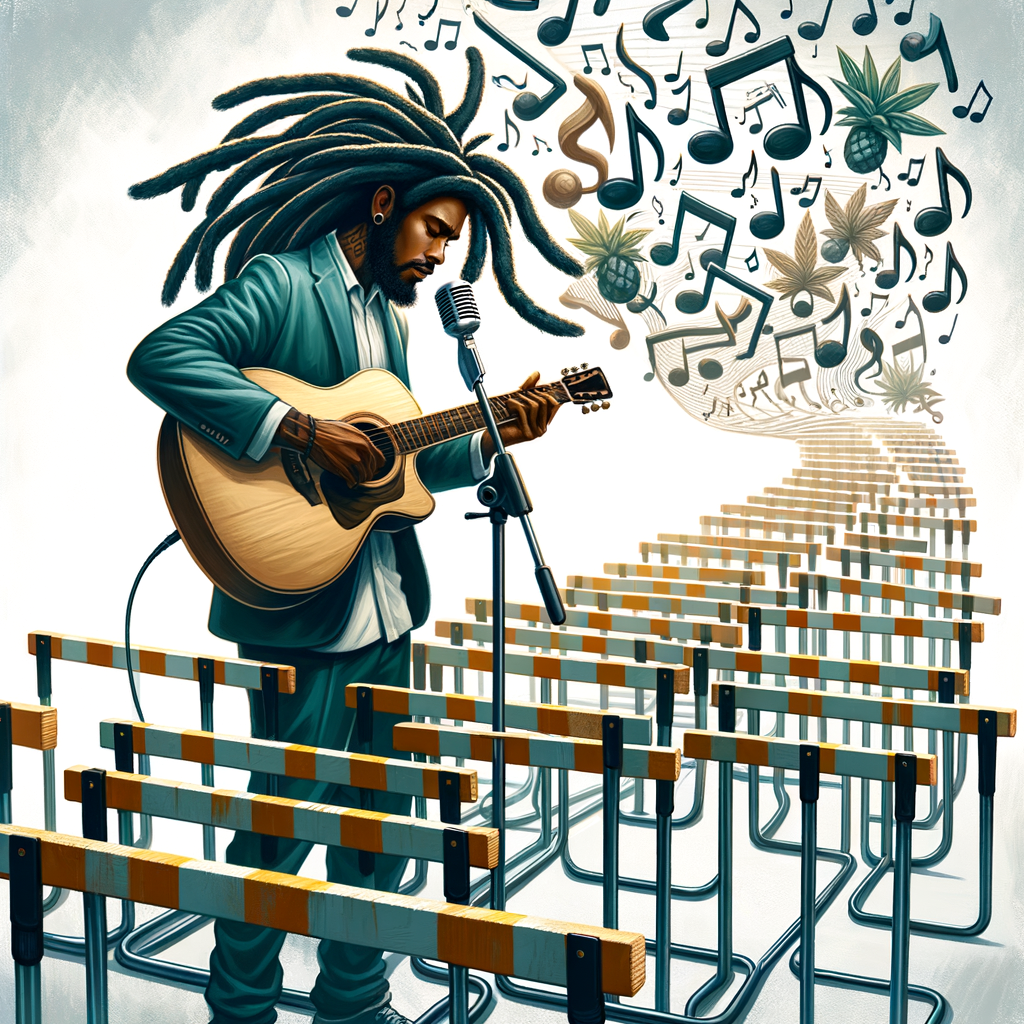
Bob Marley, the legendary Jamaican musician, is not only known for his iconic reggae music but also for his profound teachings on following our dreams and overcoming challenges· Through his music and personal experiences, Marley has left us with valuable lessons that can inspire us to find our inner strength and conquer any obstacles that come our way·
One of the key teachings we can learn from Bob Marley is the importance of staying true to ourselves and our dreams· Marley’s journey to success was not an easy one· Growing up in poverty in Jamaica, he faced numerous challenges and setbacks· However, he never let these obstacles deter him from pursuing his passion for music· Marley believed that everyone has a purpose in life and that it is our duty to follow our dreams, regardless of the challenges we may face·
In his song “Three Little Birds,” Marley sings, “Don’t worry about a thing, ’cause every little thing gonna be all right·” This simple yet powerful message reminds us to have faith in ourselves and trust that everything will work out in the end· Marley encourages us to let go of our worries and fears, and instead focus on the positive aspects of life· By adopting this mindset, we can find the inner strength to overcome any challenges that come our way·
Another important lesson we can learn from Marley is the power of perseverance· Throughout his career, Marley faced numerous obstacles, including financial struggles, criticism, and even an assassination attempt· However, he never gave up on his dreams· Marley’s determination and resilience allowed him to rise above these challenges and become one of the most influential musicians of all time·
In his song “Get Up, Stand Up,” Marley urges us to stand up for our rights and not let anyone or anything hold us back· He believed that we have the power to change our circumstances and create a better world for ourselves and others· Marley’s words serve as a reminder that we should never let adversity define us but instead use it as fuel to propel us towards our goals·
Furthermore, Marley’s teachings emphasize the importance of unity and love· He believed that through love and understanding, we can overcome any division or conflict· In his song “One Love,” Marley sings, “Let’s get together and feel all right·” This message of unity resonates with people from all walks of life and reminds us that we are stronger when we come together·
Marley’s own life is a testament to the power of following our dreams and overcoming challenges· Despite facing poverty, criticism, and even health issues, he never lost sight of his purpose· Marley’s music continues to inspire millions of people around the world, reminding us that we too can overcome any obstacles that stand in our way·
Pursuing Passion: Learning from Bob Marley’s Dedication to His Dreams
Bob Marley, the legendary Jamaican musician, is not only known for his iconic reggae music but also for his unwavering dedication to his dreams and his ability to overcome challenges· His life story serves as an inspiration to all those who aspire to pursue their passions and overcome obstacles along the way·
One of the most important lessons we can learn from Bob Marley is the importance of staying true to ourselves and following our dreams, no matter what· Marley grew up in poverty in the small village of Nine Mile, Jamaica· Despite the difficult circumstances, he never let go of his dream of becoming a musician· From a young age, he showed a natural talent for music and a deep passion for reggae· He knew that music was his calling, and he was determined to make it his life’s work·
However, pursuing his dreams was not without its challenges· Marley faced numerous obstacles throughout his career, including financial struggles, rejection from record labels, and even personal tragedies· But he never gave up· He believed in his talent and his message, and he persevered through all the setbacks· His determination and resilience are evident in his lyrics, which often speak of hope, love, and the power of the human spirit·
Another valuable lesson we can learn from Bob Marley is the importance of embracing our roots and using them as a source of strength· Marley’s music was deeply rooted in his Jamaican heritage and the struggles of his people· He used his platform to shed light on social and political issues, advocating for peace, unity, and equality· His songs became anthems for the oppressed and the marginalized, inspiring generations to stand up for their rights and fight for justice·
Marley’s ability to connect with people from all walks of life is a testament to the universal power of music· His music transcended borders and language barriers, touching the hearts of millions around the world· He showed us that music has the power to bring people together, to heal wounds, and to inspire change· Through his music, Marley taught us the importance of using our talents and passions to make a positive impact on the world·
In addition to his musical legacy, Bob Marley’s personal life also offers valuable lessons· Despite facing numerous challenges, he remained true to his values and principles· He was a man of integrity, always staying true to himself and his beliefs· He lived a simple life, free from materialistic desires, and focused on spreading love and positivity· His humility and authenticity are qualities that we can all strive to emulate in our own lives·
Bob Marley’s Legacy: Empowering Lessons for Overcoming Challenges
Bob Marley, the legendary Jamaican musician, is not only known for his iconic reggae music but also for his empowering messages of love, peace, and unity· His life and career were filled with challenges, yet he managed to rise above them and leave a lasting legacy· There are valuable lessons we can learn from Bob Marley about following our dreams and overcoming challenges·
One of the most inspiring aspects of Bob Marley’s life is his unwavering determination to pursue his passion for music· Growing up in poverty in Jamaica, he faced numerous obstacles, including limited resources and societal expectations· However, Bob Marley never let these challenges deter him from his dream· He believed in his talent and the power of his music to bring about positive change·
Bob Marley’s journey to success was not without setbacks· In the early days of his career, he faced rejection from record labels and struggled to gain recognition· But instead of giving up, he persevered and continued to create music that resonated with people· This resilience is a crucial lesson for anyone facing obstacles in their own pursuit of their dreams· It teaches us that setbacks are not the end but rather opportunities for growth and improvement·
Another important lesson we can learn from Bob Marley is the power of self-belief· Despite facing criticism and doubt from others, he remained true to himself and his vision· He understood that staying authentic and staying true to his values were essential for his success· This is a valuable lesson for anyone facing challenges or doubters along their own path· It reminds us to trust in ourselves and our abilities, even when others may not see our potential·
Bob Marley’s music was not just about entertainment; it was a powerful tool for social change· He used his platform to speak out against injustice and advocate for equality· His songs, such as “Get Up, Stand Up” and “Redemption Song,” became anthems for those fighting for freedom and equality· This aspect of his legacy teaches us the importance of using our talents and passions to make a positive impact on the world· It reminds us that our dreams and aspirations can be a force for change and inspire others to do the same·
In addition to his music, Bob Marley’s personal life also offers valuable lessons· He faced numerous health challenges throughout his life, including a battle with cancer· Despite his declining health, he continued to perform and spread his message of love and unity until his last days· This resilience and determination in the face of adversity is a powerful lesson for anyone facing their own health challenges or setbacks· It teaches us the importance of staying positive, never giving up, and making the most of every moment·
Dream Big, Rise Above: Insights from Bob Marley’s Success Story
What Can We Learn from Bob Marley about Following Our Dreams and Overcoming Challenges?
Bob Marley, the legendary Jamaican musician, is not only known for his iconic reggae music but also for his inspiring life story· His journey from humble beginnings to international fame is a testament to the power of following one’s dreams and overcoming challenges· Through his music and personal experiences, Bob Marley offers valuable insights that can inspire us to dream big and rise above any obstacles that come our way·
One of the key lessons we can learn from Bob Marley is the importance of staying true to ourselves and our passions· Despite facing numerous hardships and setbacks, Bob Marley never compromised his beliefs or artistic vision· He remained committed to spreading messages of love, unity, and social justice through his music, even when it was not the popular choice· This unwavering dedication to his craft allowed him to connect with millions of people around the world and create a lasting impact·
Another lesson we can draw from Bob Marley’s success story is the significance of perseverance in the face of adversity· Growing up in poverty in Trenchtown, Jamaica, Bob Marley faced numerous challenges, including racial discrimination and economic hardships· However, he never let these obstacles deter him from pursuing his dreams· Instead, he used his experiences as fuel to create music that resonated with people from all walks of life· Bob Marley’s determination to overcome adversity serves as a powerful reminder that with perseverance, we can overcome any challenge that stands in our way·
Furthermore, Bob Marley’s life teaches us the importance of embracing our unique voice and using it to make a difference· His music was not only a form of entertainment but also a powerful tool for social change· Through his lyrics, Bob Marley addressed issues such as poverty, inequality, and political corruption, inspiring generations to stand up for what they believe in· His ability to use his platform to shed light on important social issues serves as a reminder that we all have the power to make a positive impact on the world around us·
In addition to these lessons, Bob Marley’s life story also emphasizes the significance of surrounding ourselves with a supportive community· Throughout his career, Bob Marley was surrounded by a group of talented musicians and loyal friends who believed in his vision· This support system not only helped him navigate the challenges of the music industry but also provided him with the emotional support needed to stay focused on his goals· Bob Marley’s success serves as a reminder that having a strong support network can make all the difference in achieving our dreams·
In conclusion, Bob Marley’s life story offers valuable insights into following our dreams and overcoming challenges· His unwavering commitment to his beliefs, perseverance in the face of adversity, and ability to use his unique voice for social change are all lessons that can inspire us to dream big and rise above any obstacles that come our way· By embracing these lessons and staying true to ourselves, we can create a life that is not only fulfilling but also makes a positive impact on the world around us· So let us take inspiration from Bob Marley and dare to dream big, rise above, and make a difference·
Learn from Bob Marley’s journey of following dreams and overcoming challenges. Discover the power of perseverance and determination. Embrace his message of love, unity, and freedom. Explore more about Rasta music and its influence on Bob Marley’s legacy here: https://fifthdegreeusa.com/category/rasta-music/.

